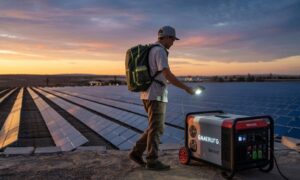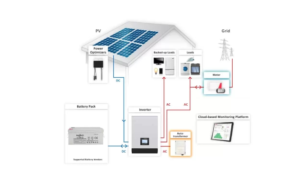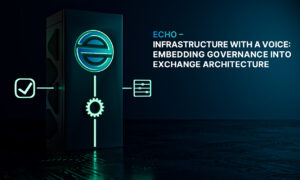In an era where sustainable living and energy independence are paramount, the concept of a “Solar Generator Whole House” has gained significant attention. Harnessing the power of the sun to generate electricity for your entire home is not only an innovative idea but a practical one.
This article explores the world of solar power station, portable power solutions, and how portable solar panels are transforming the way we power our homes and even our RVs.
How Do Whole House Solar Generators Work?
In today’s time, when there is a growing focus on renewable energy sources, whole-house solar generators have emerged as a highly promising option for homeowners who are interested in harnessing the abundant energy of the sun. These innovative systems provide a sustainable and efficient solution to power your entire residence, helping to decrease your dependence on traditional grid-connected electricity. Could you please explain in more detail how residential solar generators work? Let’s explore the intricate details of this innovative technology.
1. Solar Panel Array:
The solar panel arrangement plays a crucial role in maximizing the efficiency of a home’s solar power system. This arrangement consists of photovoltaic (PV) solar cells that are strategically positioned to harness sunlight. The solar screens consist of silicon solar cells that efficiently capture and utilize sunlight. These photons contribute to the generation of an electric charge in the solar cells, resulting in the production of direct current (DC) energy.
2. Inverter:
Many homes typically rely on alternating current (AC) systems, which may not be fully compatible with the direct current (DC) power generated by solar panels. This is the point at which the inverter becomes relevant. The primary function of the inverter is to convert the DC electricity generated by the solar panels into AC electricity, which can then be utilized to power various tools, lights, and devices within your home.
3. Battery Storage:
Solar energy availability is dependent on the presence of sunlight, which is not constant throughout the day. Solar generators for the entire house are equipped with battery storage systems that ensure continuous power supply, even during periods of darkness or at night. These batteries have the capability to store the surplus power generated by the solar panels during periods of optimal sunlight, allowing for its utilization at a later time. When the solar panels are not generating power, the stored energy can be utilized.
4. Charge Controller:
A charge sensor is employed to prevent potential damage to the battery by halting the charging process when it reaches its maximum capacity. Charge controllers play a crucial role in regulating the flow of power from solar panels to batteries. It ensures that the batteries receive an appropriate level of charge while avoiding excessive heat. This can potentially enhance their performance and durability.
5. Backup Connection to the Grid:
In several configurations of whole-house solar generators, there is often a connection to the conventional energy grid as well. This particular configuration is commonly referred to as a grid-connected system with the inclusion of backup batteries. When solar panels generate surplus energy or when batteries reach their maximum capacity, the excess energy can be redirected back into the grid. This program provides incentives to homeowners in the form of points or financial benefits from the utility company. In the event that the saved energy is depleted, the grid can serve as an alternative source of power.
6. Monitoring and Control Systems:
Modern solar units that have the capability to power an entire house often feature advanced tracking and control systems. Homeowners have the option to utilize these systems to conveniently monitor the performance of their solar panels, assess the status of their batteries, and gain insights into their overall energy production and consumption. Certain systems offer the convenience of remote control features, allowing individuals to effortlessly adjust settings or monitor the status of their system through user-friendly mobile applications or web interfaces.
Solar Power Stations: Empowering Homes with Renewable Energy
Imagine having the ability to power your entire house using nothing but the energy from the sun. Solar power stations, often referred to as solar generators, are advanced systems designed to do just that. These self-contained units consist of solar panels, an inverter, a battery bank, and a charge controller. The magic lies in the solar panels, which capture sunlight and convert it into electricity, ready to power your home.
One of the most significant advantages of solar power stations is their eco-friendliness. By relying solely on the sun’s energy, these generators produce zero emissions, making them an environmentally conscious choice. Additionally, the availability of solar energy is practically limitless, providing a consistent and reliable power source as long as the sun shines.
Portability Redefined: Portable Solar Panels for RVs
The benefits of solar power extend beyond our homes and into our adventures on the road. Portable power station designed for recreational vehicles (RVs) are a remarkable innovation that enables travelers to tap into the power of the sun while on the move. These panels are designed to be lightweight, easy to install, and can significantly enhance the RV experience.
Whether you’re camping in a remote location or cruising down the highway, portable solar panels for RV offer a convenient way to charge devices, run appliances, and even power your RV’s systems. This not only reduces the need for traditional fuel-powered generators but also aligns with the modern traveler’s desire for sustainable and off-grid solutions.
Advantages of Solar Generators for Whole-House Use
- Energy Independence: Embracing a solar generator for your entire home frees you from the limitations of the grid. With ample sunlight, you can enjoy a consistent power supply, even during grid outages or emergencies. This energy independence provides peace of mind and reliability.
- Cost Efficiency: While the initial investment might seem substantial, solar generators offer substantial long-term savings. By significantly reducing or eliminating monthly utility bills, these systems can eventually pay for themselves. Additionally, excess energy generated can potentially be sold back to the grid, creating an income stream.
- Low Maintenance: Solar power systems are remarkably low-maintenance. With minimal moving parts, routine cleaning of solar panels and basic system checks are usually sufficient to keep the system operating optimally. This simplicity translates to both time and cost savings.
- Environmental Impact: Opting for solar power aligns with the global effort to combat climate change. By relying on renewable energy, you’re actively contributing to reducing greenhouse gas emissions and lessening your carbon footprint, making a positive impact on the environment.
Conclusion
The concept of a Solar Generator Whole House has transitioned from an ambitious idea to a practical reality. Solar power stations, driven by portable solar panels, are revolutionizing the way we power our homes and mobile adventures. They embody the principles of sustainability, energy independence, and cost-efficiency.
By embracing solar power, you’re not only making a wise financial decision but also taking a step toward a greener future. Whether you’re looking to power your home off-grid or seeking an environmentally friendly way to enhance your RV travels, solar generators offer a compelling solution. The sun’s power is at your fingertips – it’s time to harness it for a brighter and more sustainable tomorrow.



































